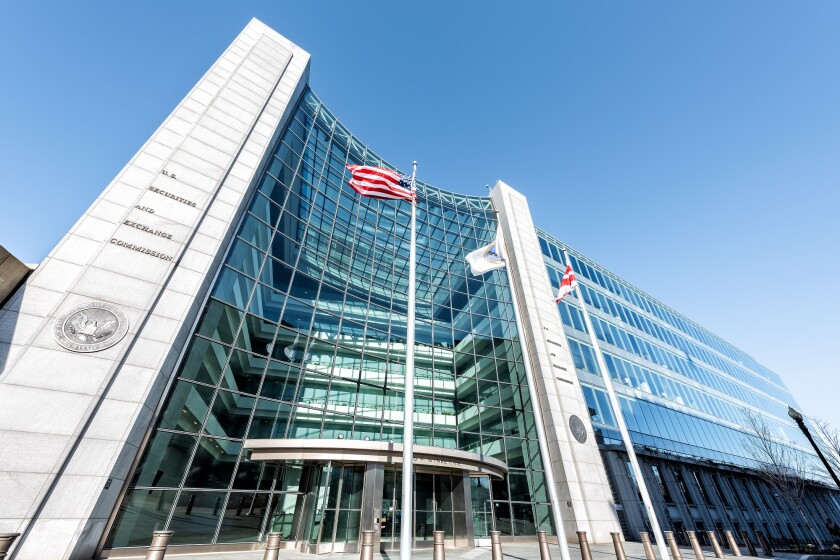Uncertainty on ESG compliance is on the rise as the US Securities and Exchange Commission voted to stop backing its climate disclosure rules on March 27.
Following a vote, SEC staff sent a letter to the court stating that it is withdrawing its support for the rules and that its counsel are no longer authorised to put forward arguments.
Legal experts, however, warn that the SEC’s current stance does not mean climate risks can be ignored.
“The current SEC posture with respect to the litigation doesn't mean companies here in the US can just ignore the impact of climate change on their businesses,” says Kevin Harnisch, head of white-collar defence and investigations for the US at Norton Rose Fulbright in Washington DC.
Writing on the wall
The SEC adopted its climate rules in March last year, but immediately paused their implementation in April 2024, following a multitude of lawsuits contesting the mandates.
The litigation was consolidated in the US Court of Appeals for the Eighth Circuit.
Harnisch says the SEC’s latest move was hardly a surprise.
“The writing’s been on the wall for some time,” he tells IFLR.
It was in 2021 that the SEC began a discourse on climate disclosure by calling for public feedback on proposed guidelines for a standardisation of climate-related disclosures rules. Public feedback was overwhelming and the journey to the final rules was fraught with contention.
Market participants argued that the mandate introduced a significant burden of compliance for in scope companies. In fact, the measures introduced by the final rule were already significantly scaled back compared to its original proposal. One of the most notable changes in the final version of the rules was the removal of mandatory reporting requirements for Scope 3 emissions.
“It was clear to many that these rules were not going to become part of the federal securities laws as proposed or likely even as adopted,” states Harnisch.
Not over yet
The SEC’s vote in March is widely seen as the result of the shifting dynamics in Washington, nearly three months in since US President Donald Trump took office.
Harnisch notes that there were already strong signals that the SEC would abandon the defence of its climate rules.
It’s important to note, however, that although the SEC has chosen not to pursue the case, the rule has not been formally rescinded.
Harnisch explains that to rescind a rule already passed by a federal government agency, there is a procedure which involves public comment period and a vote among agency heads. But these steps have not yet been taken by the SEC.
“It’s interesting that there's ongoing litigation and not yet a decision and the SEC is now saying it won’t continue to defend the rules,” says Harnisch.
“What this means is that they are going to let the litigation play out without a defence, which will likely result in the court throwing out the disclosure rules.”
Keep calm and carry on
In light of the SEC’s decision to abandon the defence of these rules, Norton Rose Fulbright is cautioning clients – particularly publicly traded companies.
“US public companies must still assess and disclose material risks, including climate-related ones, as per existing regulations,” notes Harnisch.
He explains that long before the SEC proposed climate disclosure rules, the agency had issued guidance about how public companies should be evaluating their exposure to climate-related risks.
Many companies also face international compliance requirements and business expectations that go beyond US regulations.
Those would include the European Corporate Sustainability Reporting Directive and the Corporate Sustainability Due Diligence Directive, currently under review as part of the European Commission’s Omnibus simplification package.
Other businesses choose to voluntarily report sustainability efforts as part of their broader business strategies.
Additionally, state-level regulations continue to develop. Harnisch offers the example of California.
“California has enacted broad climate disclosure laws affecting large businesses that meet certain criteria, including private companies, though these are also being litigated,” he says.
In the face of federal uncertainty, lawyers are urging companies to maintain and refine their climate governance practices.
“We are advising them to carry on with their governance efforts by assessing their global regulatory exposure, including current and upcoming laws,” Harnisch concludes.
“This involves evaluating business decisions, voluntary commitments, and corporate values. We help map these factors to their processes and controls, identify any gaps and assist in closing them – particularly in disclosure-related controls.”

